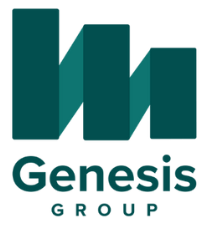Reading Time: 19 minutes
Understanding the Unique Home Buying Journey for Doctors:

Embarking on the journey of homeownership is a significant milestone for anyone, but for doctors and medical professionals, this path is often laced with unique challenges and opportunities. As a doctor in Canada, your pursuit of a dream home comes with a distinctive set of considerations, primarily due to the nature of your profession and the financial implications it brings. This guide is dedicated to unfolding the complexities of the mortgage process for doctors, helping you navigate this critical journey with ease and confidence.
The Landscape of Challenges and Opportunities in Doctor Mortgages
The mortgage process for doctors isn’t just a straightforward financial transaction; it’s an intricate dance that balances your high-demand career with the nuances of financial planning. One of the primary challenges you might face is dealing with the weight of medical school debt. This debt can significantly impact your debt-to-income ratio, a crucial factor that lenders consider. However, it’s not all hurdles; your esteemed profession also positions you uniquely in the eyes of lenders. Your high earning potential and job stability make you an attractive borrower, opening doors to exclusive mortgage options tailored for medical professionals.
Understanding these challenges and opportunities is the first step in successfully navigating the mortgage landscape. As a doctor, you need mortgage solutions that are not just effective but also empathetic to your specific financial situation and career trajectory.
Why Tailored Mortgage Advice is Vital for Doctors
The importance of receiving customized mortgage advice cannot be overstated, especially in the medical profession. Standard mortgage products and advice that apply to the general public may not suit your unique circumstances as a doctor. This is where tailored mortgage solutions come into play. They take into account various factors, such as fluctuating income levels during residency, the impact of student loans, and the potential for future income growth.
Customized mortgage advice for doctors also considers the stage of your medical career. Whether you’re a resident, a fellow, or an established physician, each phase comes with its financial challenges and opportunities. A mortgage strategy that aligns with your career stage can make a significant difference in how effectively you can manage your mortgage alongside your professional responsibilities.

In summary, as a medical professional stepping into the world of real estate, you are set on a path that is as rewarding as it is challenging. Your journey to homeownership demands more than just finding the right property; it calls for a deep understanding of how your profession impacts your mortgage options and financial planning. This guide aims to provide you with the insights and knowledge necessary to navigate this journey, ensuring that your move towards homeownership is as seamless and successful as your commitment to your medical career.
The Doctor’s Advantage: Why Lenders Favor Medical Professionals

In the world of home financing, certain professions are viewed more favorably by lenders due to their financial stability and earning potential. Doctors and medical professionals stand out in this regard. Understanding why lenders tend to favor doctors can be key in leveraging your professional standing to secure favorable mortgage terms.
High Earning Potential and Job Stability
The medical profession is renowned for its high earning potential. This is a significant factor that makes doctors attractive candidates for mortgages. Lenders are in the business of risk management, and their primary concern is the borrower’s ability to repay the loan. A medical professional’s typically high and reliable income stream presents a lower risk, making lenders more comfortable offering mortgages to doctors.
Additionally, the medical field is known for its remarkable job stability. Even in economic downturns, the demand for medical services remains consistent, if not increases. This job security further reassures lenders that doctors are capable of maintaining consistent mortgage payments, reducing the likelihood of default.
Benefits in Mortgage Terms and Conditions
Due to these factors, doctors often have access to special mortgage terms and conditions that are generally more favorable than those available to other borrowers. These benefits can include:
Higher Loan Limits: Lenders might be willing to offer higher loan amounts to doctors compared to other professions. This means you can potentially buy a more expensive home than you could have otherwise afforded.
Better Interest Rates: Some lenders offer reduced interest rates to doctors, acknowledging their lower risk profile. This can lead to significant savings over the life of the loan.
Flexible Underwriting: Understanding that doctors often carry significant student loan debt, some lenders may offer more flexible underwriting processes. This can include not counting student loan debt against you in the same way it might for other borrowers, or being more lenient on credit history requirements.
No Private Mortgage Insurance (PMI): For many mortgage programs, if you don’t put down at least 20% of the home’s purchase price, you’re typically required to purchase PMI. However, some lenders waive this requirement for doctors, which can lead to considerable savings.

Understanding these advantages can empower you as a medical professional to navigate the mortgage landscape more effectively. It’s not just about the ability to secure a mortgage, but about optimizing the terms to your advantage. As a doctor, your financial and professional status gives you a unique leverage in the mortgage market, one that can significantly impact your home buying journey and long-term financial health.
Navigating Medical School Debt in Mortgage Applications

Medical school is an investment in your future, but it often comes with a significant amount of debt. For doctors and medical professionals, understanding how this debt impacts your ability to secure a mortgage is crucial. This section explores the influence of educational debt on borrowing capacity and offers strategies for managing this debt effectively when applying for mortgages.
The Impact of Educational Debt on Mortgage Approval
Medical school loans can be a double-edged sword. On the one hand, they’re an investment in a lucrative career; on the other, they can be a substantial liability when applying for a mortgage. Lenders assess your debt-to-income ratio, which is a key determinant in the mortgage approval process. A high level of student debt can skew this ratio, potentially making it more challenging to secure a mortgage or to get favorable terms.
However, it’s important to note that many lenders are aware of the unique financial situation of medical professionals. They understand that while doctors may have higher levels of debt, they also have higher future earning potential. Some lenders may therefore assess medical school debt differently, considering it as an investment in a stable and high-paying career.
Strategies for Managing Medical School Debt in Mortgage Applications
Successfully managing your medical school debt can enhance your mortgage application. Here are some strategies to consider:
Debt Consolidation: Consider consolidating your medical school loans. This can simplify your debts into a single payment and potentially lower your monthly outgoings, improving your debt-to-income ratio.
Refinancing for Better Terms: If you have high-interest student loans, refinancing could be a good option. Refinancing to a lower interest rate can reduce your monthly payments and the total cost over the life of the loan.
Deferred Repayment Plans: Some lenders may allow deferral of student loan payments under certain conditions. If you’re still in residency or early in your career, this can be a strategic move to improve your current debt-to-income ratio.
Long-Term Financial Planning: Work on a long-term financial plan that accounts for both your student debt and your homeownership goals. This may involve budgeting more carefully and prioritizing debt repayment to improve your financial standing for a future mortgage application.
Communicating Your Career Trajectory: When discussing your mortgage application with lenders, be sure to communicate your career trajectory clearly. Highlighting your future earning potential and job stability can help lenders view your student debt in the context of your overall financial picture.

Managing medical school debt is a critical step in preparing for a mortgage application. By understanding how lenders view this debt and employing strategies to manage it effectively, you can position yourself as a strong candidate for mortgage approval, turning the dream of homeownership into a reality.
Mortgage Options for Medical Professionals

Navigating the world of mortgages can be complex, and for medical professionals, this is further compounded by unique career paths and financial situations. Understanding the different types of mortgages and specific programs available can make a significant difference in your home-buying journey. Let’s delve into the common mortgage options and some exclusive programs tailored for doctors.
Understanding Fixed-Rate vs. Variable-Rate Mortgages
The choice between a fixed-rate and a variable-rate mortgage is a crucial decision for any homebuyer, including medical professionals.
Fixed-Rate Mortgages: These mortgages come with an interest rate that remains constant for the entire term of the loan. The primary advantage is predictability in your monthly payments, making budgeting easier. This stability can be especially appealing for medical professionals who prefer consistent expenses amidst a demanding career.
Variable-Rate Mortgages: With these mortgages, the interest rate can change based on market conditions. Initially, the rates are often lower than fixed-rate mortgages, potentially saving you money in the short term. However, they carry the risk of increasing rates, which can raise your monthly payments over time. For doctors comfortable with some level of risk and those who plan to pay off their mortgage quickly, a variable-rate mortgage could be a suitable option.
Special Mortgage Programs for Doctors
Recognizing the distinct financial profiles of medical professionals, some lenders offer doctor-specific mortgage programs. These programs are designed to accommodate the unique circumstances of doctors, such as high student loan debt and delayed career starts due to extended education periods.
100% Financing Options: Some lenders offer 100% financing to doctors, allowing you to purchase a home without a traditional 20% down payment. This can be a huge benefit, particularly for early-career doctors who may not have had the opportunity to save for a down payment.
PMI Waivers: Private Mortgage Insurance (PMI) is typically required for buyers who put down less than 20% of the home’s purchase price. However, doctor-specific programs may waive PMI, leading to significant savings.
Flexible Underwriting: Given the unique earning potential and debt profiles of doctors, some mortgage programs offer more flexible underwriting criteria. This can mean more favorable terms and an easier qualification process compared to standard mortgage products.

Making the Right Choice
For medical professionals, choosing the right mortgage type and exploring doctor-specific programs is a decision that requires careful consideration of your current financial status, future career plans, and personal preferences. Whether you opt for the stability of a fixed-rate mortgage or the potential initial savings of a variable-rate mortgage, or decide to take advantage of programs specifically designed for doctors, it’s crucial to assess how each option aligns with your long-term financial goals.
The Application Process: What Doctors Need to Know

For doctors and medical professionals, the mortgage application process involves several key steps that differ slightly from those of the average homebuyer. Due to the unique financial situations often encountered in the medical profession, being well-prepared and understanding the specifics of the application process can lead to a smoother and more successful home-buying experience.
Preparing Your Documentation
One of the first and most important steps in the mortgage application process is gathering the necessary documentation. As a doctor, you’ll need to provide several key pieces of information, which may include:
Proof of Identity and Legal Residency: This typically includes government-issued photo ID and possibly additional documentation confirming your residency status in Canada.
Proof of Employment and Income: Since income stability is a crucial factor in mortgage approval, you’ll need to provide proof of employment. This can be an employment contract for salaried physicians or recent tax returns if you’re self-employed.
Credit History and Score: Your credit score is a vital component of your application. Obtain a copy of your credit report and ensure there are no inaccuracies.
Documentation of Assets and Liabilities: This includes bank statements, investment accounts, and documentation of any other assets. You’ll also need to disclose all liabilities, including student loans, car loans, and credit card debts.
Medical School Debt Documentation: If you have medical school loans, provide detailed information about them, including the amounts and terms.
Down Payment Proof (if applicable): If you’re making a down payment, you’ll need to show proof of these funds, whether they’re from savings, investments, or a monetary gift.
Understanding the Pre-Approval Process
Getting pre-approved for a mortgage is a critical step, especially for doctors who may have complex financial backgrounds. Pre-approval involves a lender evaluating your financial situation to determine how much they would be willing to lend you. This process includes assessing your credit score, income, debts, and assets.
The Importance of Pre-Approval
- Budget Planning: Pre-approval gives you a clear idea of how much you can afford, which is crucial in setting your home-buying budget.
- Enhanced Credibility with Sellers: In a competitive housing market, being pre-approved can make you a more attractive buyer in the eyes of sellers.
- Time-Saving: Knowing your budget range in advance helps you save time by focusing on properties within your price range.
Steps in the Pre-Approval Process
- Contact a Lender: Reach out to a lender or a mortgage broker to start the process. It’s often beneficial to work with someone familiar with the medical profession.
- Submit Your Financial Information: Provide all the necessary documentation for the lender to review.
- Credit Check: The lender will perform a credit check to assess your creditworthiness.
- Receive Pre-Approval Letter: If successful, you’ll receive a pre-approval letter stating the amount the lender is willing to lend you.

Navigating the mortgage application process as a medical professional requires thorough preparation and a clear understanding of what lenders are looking for. By meticulously preparing your documentation and understanding the importance of the pre-approval process, you can streamline your path to securing the right mortgage for your needs.
Financial Planning and Budgeting for Homeownership

For doctors and medical professionals, financial planning for homeownership requires a careful and strategic approach. Balancing a significant income with the unique expenses of your profession, along with the costs associated with buying a home, demands a nuanced understanding of budgeting and financial management.
Setting a Realistic Budget
Understanding Your Financial Capacity
The first step in setting a budget for your home purchase is to assess your financial capacity realistically. This means considering not only your income but also your existing debts, including medical school loans, and your regular expenses.
Calculating Your Home Buying Budget
A prudent approach is to follow the general rule of thumb that your monthly mortgage payment should not exceed 28-30% of your gross monthly income. However, given the high income potential of medical professionals, it’s essential to tailor this percentage to your specific financial situation, taking into account your long-term financial goals and current debt obligations.
Incorporating All Homeownership Costs
When budgeting for a home, remember to account for all associated costs, not just the mortgage payment. This includes property taxes, home insurance, maintenance costs, and potentially homeowner association (HOA) fees. These can add a significant amount to your monthly expenditures.
Saving for Down Payment and Other Costs
Strategies for Accumulating Savings
- Automated Savings Plans: Setting up automated transfers to a savings account can help steadily build your down payment fund.
- Debt Management: Paying down high-interest debts can free up more of your income for saving towards a home.
- Investment in High-Yield Accounts: Consider placing your savings in high-yield savings accounts or other low-risk investment options to grow your funds more effectively.
Planning for Additional Homeownership Expenses
Apart from the down payment, you’ll also need to save for closing costs, which can range from 2% to 5% of the home’s purchase price, and any immediate home improvements or furnishings you may need.

The Importance of an Emergency Fund
Establishing an emergency fund is crucial, particularly in the unpredictable world of homeownership where unexpected repairs and expenses can arise. As a medical professional, having a financial cushion can also provide peace of mind during any unforeseen changes in your professional landscape.
Navigating the financial aspects of buying a home as a doctor can be complex, but with the right planning and budgeting strategy, it becomes a manageable and achievable goal. By setting a realistic budget, diligently saving for down payment and additional costs, and establishing a robust emergency fund, you can approach homeownership with confidence and financial stability.
Special Considerations for Self-Employed Doctors

For self-employed doctors and practice owners, the path to securing a mortgage comes with its own set of unique challenges. Unlike salaried physicians, who often have a straightforward income verification process, self-employed doctors face a more complex scenario when applying for a mortgage. Understanding these challenges and how to effectively navigate them is crucial for successful homeownership.
Unique Challenges in Mortgage Approval for Self-Employed Doctors
Variability of Income
One of the primary complexities self-employed doctors face is the variability of their income. Unlike a steady paycheck, income from private practice can fluctuate, making lenders more cautious.
Proof of Income and Business Health
Lenders will scrutinize not only your personal finances but also the financial health of your practice. This often means providing additional documentation, such as tax returns, business financial statements, and potentially profit and loss statements, to prove your practice’s stability and viability.
Higher Scrutiny from Lenders
Due to the perceived higher risk of lending to self-employed individuals, you may face more rigorous scrutiny during the mortgage application process. Lenders might require more extensive proof of stable income and a healthy debt-to-income ratio.
Overcoming Mortgage Approval Challenges
Maintaining Clear and Comprehensive Financial Records
Keeping detailed and organized financial records is paramount. This includes not only your personal finances but also comprehensive documentation of your business income and expenses. Clear records can demonstrate the stability and profitability of your practice.
Enhancing Creditworthiness
A strong credit score is crucial for any mortgage applicant but is particularly important for self-employed doctors. Regularly monitor your credit score and work towards improving it, ensuring you present yourself as a reliable borrower.
Building a Larger Down Payment
Consider saving for a larger down payment. A substantial down payment can mitigate some of the lender’s risks, possibly leading to more favorable mortgage terms.
Separate Personal and Business Finances
Clearly delineating your personal and business finances can simplify the mortgage process. This separation helps lenders accurately assess your personal financial health, distinct from your practice.
Consider Working with a Mortgage Broker
A mortgage broker experienced in working with self-employed individuals can provide invaluable assistance. They can help navigate the complexities of the application process, find lenders who are more amenable to self-employed applicants, and advocate on your behalf.

Conclusion
Securing a mortgage as a self-employed doctor requires a strategic approach, encompassing careful financial record-keeping, credit management, and possibly a larger initial investment in your home. While the journey may be more complex, with the right preparation and understanding of what lenders are looking for, homeownership remains an achievable and rewarding goal.
Working With Mortgage Brokers: A Doctor’s Guide

Navigating the mortgage market can be a complex task, especially for busy medical professionals. Mortgage brokers can play a crucial role in simplifying this process for doctors. Understanding the role of mortgage brokers and knowing how to choose one that aligns with your specific needs as a medical professional is key to a successful home-buying experience.
The Role of Mortgage Brokers in Simplifying the Process
Mortgage brokers serve as intermediaries between borrowers and lenders. Their role is particularly beneficial for doctors who may not have the time or expertise to compare various mortgage products and lenders on the market.
Access to a Variety of Lenders
Brokers have access to a wide range of mortgage products and lenders, including those that offer special programs for doctors. They can sift through numerous options to find the best rates and terms that suit your unique financial situation.
Expertise in Negotiation and Paperwork
A seasoned mortgage broker can negotiate terms with lenders on your behalf and help streamline the application process. They are adept at handling the paperwork and can guide you through each step, ensuring that you understand all aspects of your mortgage agreement.
Personalized Service
Good mortgage brokers provide personalized service, taking the time to understand your specific requirements as a doctor, including considering your career trajectory, income potential, and any other unique financial circumstances.
Choosing the Right Broker for Medical Professionals
Specialized Experience in Working with Doctors
Look for a broker who has experience working with medical professionals. They are more likely to understand the specific challenges and opportunities inherent in the medical profession, such as variable income during residency or the impact of medical school loans.
Strong Industry Reputation
Choose a broker with a strong reputation in the industry. Check for reviews, testimonials, or ask for referrals from fellow medical professionals who have had successful experiences.
Clear Communication and Availability
Your broker should be an excellent communicator, keeping you informed throughout the process. They should be readily available to answer your questions and provide advice when you need it.
Transparency and Integrity
Ensure that the broker is transparent about their fees and the range of products they offer. A trustworthy broker will always act in your best interest, providing unbiased advice.

Conclusion
Working with a mortgage broker can greatly ease the burden of finding and securing the right mortgage for doctors. By choosing a broker who understands the intricacies of the medical profession and is committed to providing personalized, transparent service, you can navigate the mortgage process more effectively and with greater peace of mind.
Embarking on Your Homeownership Journey

As we conclude this comprehensive guide, let’s recap the essential insights and strategies that can empower you, as a medical professional, to navigate the mortgage process with greater ease and confidence.
Recap of Key Points for Doctors Seeking Mortgages
Understanding Specialized Mortgage Options: Remember, as a doctor, you have access to unique mortgage programs tailored to your profession. These can offer benefits like higher loan limits, preferential interest rates, and sometimes even 100% financing options.
Navigating Medical School Debt: Managing your medical school debt effectively is crucial for mortgage approval. Strategies like debt consolidation and refinancing can help present your financial status more favorably to lenders.
The Importance of Tailored Mortgage Advice: Working with financial professionals who understand the specific needs and challenges of doctors can make a significant difference in your home-buying journey.
Choosing the Right Mortgage Type: Assess your personal and financial situation to decide whether a fixed-rate or variable-rate mortgage suits you best. Each has its advantages and drawbacks, depending on your individual circumstances and risk tolerance.
The Role of Mortgage Brokers: A mortgage broker experienced in working with doctors can be an invaluable asset, providing access to a wider range of products and handling much of the legwork in the mortgage process.
Financial Planning and Budgeting: Effective financial planning, including saving for a down payment and budgeting for ongoing homeownership costs, is key to a successful home purchase.
Special Considerations for Self-Employed Doctors: If you’re a self-employed physician or run a private practice, prepare for additional scrutiny and ensure your financial records are comprehensive and well-organized.
The Path Forward
As a doctor embarking on the path to homeownership, you bring a unique set of qualifications and challenges to the table. With the right information and preparation, you can approach the mortgage process with assurance and clarity. Remember, owning a home is not just a personal achievement; it’s an investment in your future and a testament to your hard work and dedication in your professional life.
Whether you’re just starting your career, in the midst of it, or looking towards retirement, the journey to owning a home can be a fulfilling part of your story. We encourage you to use the insights and advice from this guide to navigate the mortgage process and find a home that not only meets your needs but also enriches your life.
Embark on your homeownership journey with confidence, backed by the knowledge and resources tailored for medical professionals like you.

As we wrap up this comprehensive guide on navigating mortgages for doctors and medical professionals, remember that the journey to homeownership, while exciting, can also be complex and filled with unique challenges. At the Genesis Group, an award-winning mortgage brokerage, we understand these challenges and are committed to guiding you through every step of your home-buying journey with expertise and personalized care.
Ready to Take the Next Step in Your Homeownership Journey?
Reach Out to the Genesis Group for Expert Guidance If you’re a medical professional considering homeownership, don’t navigate this journey alone. Let the Genesis Group, with its deep understanding of the unique mortgage needs of doctors, be your trusted partner. Our team of experienced mortgage specialists is ready to offer you personalized advice, tailored mortgage solutions, and unwavering support throughout the process.
Connect with Us Today
- Personalized Mortgage Solutions: We offer bespoke mortgage advice, considering your individual financial situation and career trajectory.
- Award-Winning Expertise: Our team has a proven track record of successfully assisting medical professionals in securing their ideal home loans.
- Comprehensive Support: From initial consultation to closing, we are here to simplify the mortgage process and ensure a seamless experience.
Share Your Story and Join Our Community
Engage with Fellow Medical Professionals Your experiences, insights, and questions about the mortgage process are invaluable. We invite you to share them with us and our community of medical professionals. By doing so, you help foster a network of informed and empowered homebuyers within the medical field.

Participate in Our Community
- Share Your Experience: Have you recently navigated the mortgage process? Tell us about your journey.
- Ask Questions: Uncertain about certain aspects of getting a mortgage? Our community and experts are here to help.
- Learn from Peers: Gain insights from the experiences and advice of other medical professionals who have walked this path.
Embarking on Your Homeownership Journey with Confidence
At the Genesis Group, we’re more than just mortgage advisors; we are your partners in turning your dream of homeownership into a reality. Reach out to us today to begin your journey with confidence, backed by a team that understands and caters to the specific needs of medical professionals.
Contact the Genesis Group now and take the first step towards owning your dream home. Your journey to homeownership starts here!
Glossary:
Fixed-Rate Mortgage: A home loan with a constant interest rate throughout the entire term, offering predictable repayment amounts.
Variable-Rate Mortgage: A mortgage where the interest rate can fluctuate based on market conditions, leading to varying repayment amounts.
Debt-to-Income Ratio: A measure used by lenders to assess a borrower’s ability to manage monthly payments and repay debts, calculated as total monthly debt divided by gross monthly income.
Private Mortgage Insurance (PMI): Insurance typically required when a down payment is less than 20% of a home’s purchase price, protecting the lender in case of borrower default.
100% Financing: A mortgage option that allows homebuyers to finance the entire purchase price of a home without a down payment.
Pre-Approval: A lender’s preliminary assessment of a borrower’s financial situation to determine how much they can borrow.
Credit Score: A numerical expression based on a level analysis of a person’s credit files, representing the creditworthiness of an individual.
Refinancing: The process of replacing an existing mortgage with a new loan, typically with better terms or to extract equity.
Loan-to-Value Ratio (LTV): A financial term used by lenders to express the ratio of a loan to the value of the asset purchased.
Underwriting: The process a lender uses to assess the creditworthiness and risk of potential borrowers.
FAQs
As a doctor, what special mortgage options are available to me?
Doctors often have access to specialized mortgage programs that may offer benefits like higher loan limits, reduced interest rates, 100% financing options, and waivers on private mortgage insurance (PMI).
How does medical school debt affect my mortgage application?
Medical school debt can impact your debt-to-income ratio, which is a critical factor in mortgage approvals. However, some lenders may assess this debt differently, considering the future earning potential of medical professionals.
Can self-employed doctors get a mortgage?
Yes, self-employed doctors can obtain a mortgage, but they might face additional scrutiny from lenders. They will need to provide comprehensive documentation of their income and the financial health of their practice.
Should I choose a fixed-rate or variable-rate mortgage?
The choice depends on your personal financial situation and risk tolerance. A fixed-rate mortgage offers stability in repayments, while a variable-rate mortgage might provide lower initial rates but with potential future rate fluctuations.
Why should I consider working with a mortgage broker?
Mortgage brokers can provide access to a variety of lenders and mortgage products, negotiate terms on your behalf, and guide you through the application process, especially beneficial for busy medical professionals.
How important is my credit score when applying for a mortgage?
Your credit score is a crucial factor in your mortgage application. It affects your eligibility for certain loans and the interest rates you will be offered. Maintaining a good credit score is important for securing favorable mortgage terms.
What is the importance of getting pre-approved for a mortgage?
Pre-approval gives you an idea of how much you can borrow and shows sellers that you are a serious buyer. It can also speed up the actual mortgage approval process once you find a property you wish to purchase.
Contact the Genesis Group for personalized advice and assistance tailored to your unique situation as a medical professional.


